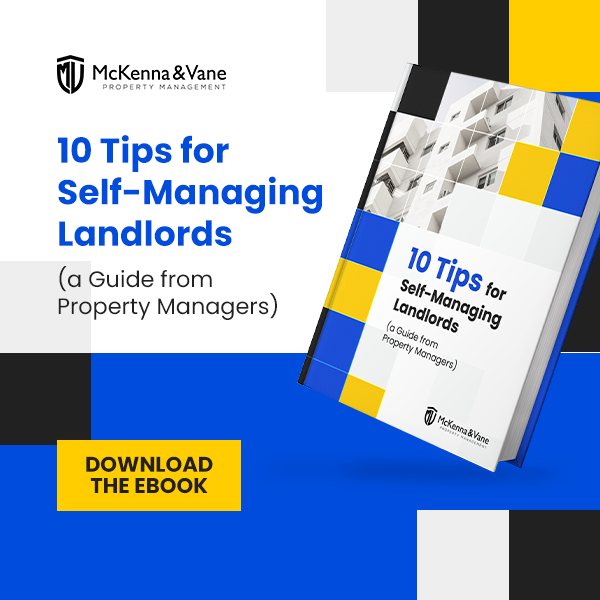Costs That Landlords Don’t Notice They’re Accruing

When you own and operate rental properties, you must be prepared for all the possible expenses associated with this kind of investment. Knowing the recurring expenses can help you set aside a budget from your monthly rental income to cover these costs.
However, there are some rental property expenses that are not planned, and some of them can accrue quickly, having a big impact on your bottom line.
To ensure profitability, landlords should account where their money is going to know which rental property expenses they can cut down. Moreover, knowing how to identify the expenses that add up quickly can help them make careful decisions about their spending habits.
Here are the costs that can accrue quickly without a landlord noticing:
1. Costs of Rental Property Maintenance and Repairs
As a landlord, you have the responsibility to keep your rental property investment in a habitable condition. You need to comply with the health and safety standards stated in the law because it is part of your legal duties to provide a habitable space for your tenant. This means that you should address repair issues in a timely manner.
To prevent paying for high repair and maintenance costs, it’s best to conduct regular inspections. Routine maintenance and inspections are important because they can help you identify potential repair issues before the problem can cause serious damage.
Regular inspections can help you save on rental property maintenance expenses because you’ll be able to resolve any issues early on.
.jpg)
However, if you fail to conduct regular inspection, you’ll only know of any issues when they are already big and costly to resolve. This can easily add up to your expenses without you noticing it. You can prevent this by making sure that your property is inspected on a regular basis and addressing small concerns before they become serious problems.
2. Problematic Tenants
If you own a rental business, your tenant is your major source of rental income. However, if you end up with bad renters, then your renters will be your major source of problems.
Problematic tenants can be costly to manage, because often, they can cause certain issues like damages to the property, missed rent payment, and problems with the neighbors.
If the problems with bad renters become too much to handle, a landlord may have to pay for legal fees to process eviction. To prevent this from happening, landlords need to avoid bad renters altogether. As a landlord, you need to have a thorough tenant screening process in place to ensure that you’re only accepting quality tenants.
To ensure that your renters can pay their rent on time, verify their income sources and their employment history. To ensure that the renters will abide by the terms of the lease agreement, perform a background check, and talk to their past landlords and neighbors. You can also check your renters’ criminal and credit record for your peace of mind.
3. Cost of Legal Services
Owning an investment property involves several legal aspects that a landlord needs to understand and comply with. For instance, landlords need to know the provisions stated in the landlord-tenant law to ensure that they stay in compliance. A landlord also need to know the Fair Housing Act in your area to avoid any problem later.

The problem is that not all landlords are familiar with the state and local laws associated with owning a rental home. That is why most rental property owners prefer to hire a legal counsel to help them with their legal concerns.
However, legal counsels are typically expensive. Moreover, if you work with a law firm that is not knowledgeable about real estate issues, you could end up facing more costly problems.
When working with a legal counsel, it’s important to discuss their fees and the extent of their services first. Some law firms charge on a per service basis, while others have a fixed monthly rate even if they don’t provide any service. If you have a high volume of legal tasks that you need help with, a fixed-rate arrangement may be a good idea.
However, if you only need legal advice on rare occasions, then perhaps you can consider hiring a lawyer that charges per service or consultation. It’s important to know your business’s unique needs to find out which one will work best for you.
4. Your Property Is Vacant for Too Long
All rental property owners know that a vacant rental home is costly to manage. Why? It’s because when your property is vacant, it doesn’t generate income and cash flows to cover for the costs associated with it. That is why when your rental home gets vacant, you must get started with your marketing to fill-in vacancies right away.
.jpg)
Effective marketing strategies can help you find highly qualified tenants soon after your property is listed on the market. The next step that you need to do is to ensure to retain your tenants for the long term. You can do this by providing high-quality services and building a good business relationship with them.
5. Contractor and Vendor Payables
Working with contractors and vendors is an essential aspect of operating a rental business. However, if a landlord chooses a team that's not well-versed in rental properties, then they could end up flushing their money down the drain.
A landlord could spend more than what they should, but still be unable to resolve issues because they work with unreliable contractors.
As a rental property owner, you should choose your vendors and contractors carefully just like you screen tenants. Make sure that you only hire professionals who are experts in their fields.
Bottom Line
As a real estate investor, you need to keep track of all the expenses related to owning a rental property. It’s important to prepare for all possible costs so you won’t be caught off-guard. The good news is that you can save on certain costs by hiring a professional rental property manager.
McKenna and Vane Property Management provides complete management services, including marketing the rental unit, screening tenants, attending to repairs and maintenance, providing legal advice, and processing evictions. Get in touch with us today!
